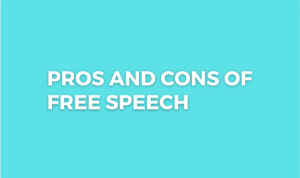The juvenile justice system is a judicial system that handles children who break the law. This system allows vulnerable children to be treated differently than vulnerable adults. In most cases, many people believe that young people should be treated lenient, while others believe that young criminals should be treated the same way adults are punished. This post will discuss the pros and cons associated with the juvenile justice system.
Pros of Juvenile Justice System
1. Fewer or no room to commit multiple serious crimes. By having a juvenile justice system in place, the government can quickly curb the occurrences of crimes. Once vulnerable adolescent commits serious or violent crime, they are charged and sentenced. This reduces the number of criminals in society, reducing the number of serious crimes that are likely to occur.
2. Young people can access services unavailable to other judicial systems. One of the primary advantages of the juvenile system over other judicial systems is that young offenders can access better schools and health facilities. The government ensures that young offenders can access vocational training and other development skills.
3. Protection from sexual abuse. Young offenders are kept apart from adult offenders. Therefore, they are safe from sexual and other physical or mental abuse.
4. Rehabilitation. The juvenile justice system plays a significant and vital role in installing good morals and virtues in young offenders. This practice helps reform the offenders, producing responsible people in society. Similarly, the juvenile system offers juvenile offenders substance and drug addiction treatment.
5. Specialized care. In most cases, juvenile prisons are less densely populated, so the sentenced offender will likely receive specialized care. For instance, female convicts who may have suffered from sexual abuse may be treated and at the same time be counseled.
6. Proper monitoring of young offenders. Since all young offenders are placed in the same prisons and cells, it is easier to monitor their behaviors. Through the monitoring plan, the young offenders can learn the accepted values in the community.
7. Solves the overpopulation problem in prisons. The juvenile justice system sentences young offenders to separate prisons with those from adult offenders. This helps to reduce the number of offenders in main prisons. Therefore, the population in a given prison can easily be managed.
8. Reduction of crime rate. The juvenile judicial system allows the government to convict and sentence teens who commit crimes. This system allows for curbing and reducing the number of crimes in society as all criminals are punished regardless of age.
9. Lenient punishments. Unlike the criminal justice system imposes heavy and tough punishments on offenders, the juvenile is more lenient. Therefore, the offenders can easily cope with these lenient punishments.
10. Ensures there’s harmony in society. The juvenile judicial system plays a vital role in promoting peace in the community. The youths who are a threat to the community are convicted, reducing the number of criminals in society.
11. Teens learn about accountability. Through the process of rehabilitation, society can teach young offenders about accountability. The offenders can learn the expectation of society, among other acceptable values in the community.
Cons of Juvenile Justice System
1. Subject to adult penalties. Sometimes, the Juvenile Justice system has too severe sentences for young offenders who commit serious crimes. For example, the conviction of life sentence for juveniles is a too severe punishment for teens.
2. The age of the child does not matter. Sometimes, while imposing punishments and punishments on young teens, the court may not consider the child’s age. Thus, children below 15 years may be sentenced if found guilty. However, some countries go for home confinement if the offenders are too young.
3. No fair jury trial. In most cases, juveniles face the judges of adult courts. Therefore, they do not get a panel that reflects their maturity and age. Due to this, they end up being imposed severe punishments.
4. Transferring juveniles to Adult prisons. When the young offender attains the adult age, they are transferred to adult prison. This transferring process takes away the responsibility of the parents. Parents no longer take care of their child; the state becomes the guardian and custodian of the child in question.
5. Lose of connection. The young offenders are confined, making them lose their connection with loved ones. The teens in question are limited freedom of movement. Also, many of their friends avoid them as they do not want to be associated with a criminal.
6. Young offenders suffer mentally. Most juvenile offenders are young and not mature enough to cope with the conviction penalties. Due to this, most of them suffer mentally and emotionally. The rehabilitation done to the victims serves no justice as some are greatly affected. Therefore, the Juvenile justice system should come up with other favorable ways of punishing young offenders.
7. Higher rate of recidivism as compared to the Crime justice system. The term recidivism means the tendency of a convicted to re-offend. The juvenile justice system has lenient punishment compared to adult courts. This significantly contributes to offenders re-offending again.
8. Increased risks to youths. The convicted teens will likely undergo many challenges and risks while in juvenile prisons. The system does not wholly protect the child from risks such as sexual abuse and heavy punishments. Due to this, most of the convicted youth suffer emotionally and mentally.
9. The adult court issue. Sometimes, the young offenders are subjected to adult courts and end up in adult prison. During the sentence period, the young offenders will likely undergo heavy punishments.
10. Difficult to seal a juvenile criminal record. When young offenders commit a crime, their criminal records are sealed. Sealing juvenile criminal records of teens below 18 years old prove more difficult than adults.



